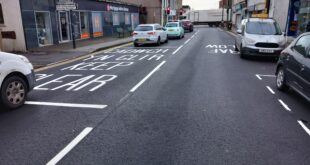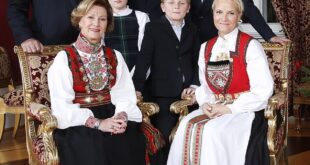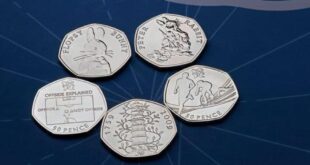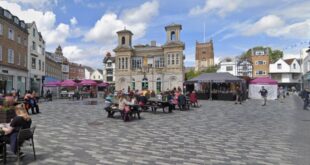YOUR feature on the Battle of Britain does well to highlight what you term the “part-time volunteers” of the Auxiliary Air Force and their role 80 years ago (“Spotlight on selfless actions of ordinary heroes”, September 15).
The wider context of No. 602 (City of Glasgow) Squadron RAF, an Auxiliary Unit, to which Archie McKellar, central to your article with dominant photograph, was initially assigned would, however, have given a better understanding of how those newly-trained fliers in 1938 and 1939 were soon flying Hawker Hurricanes and Gladiators as they moved to other units.
The best example of this is the career of East Kilbride-born Robert Findlay Boyd (1916-1975), on whom your writer touches, as he moved from 602 (City of Glasgow) Squadron to 54 Squadron RAF (Catterick) where in December 1940 he was appointed as Commanding Officer.
In July 1941 he was promoted to command of 58 Operational Training Unit RAF (Grangemouth), and then as Wing Leader at Kenley.
As a war-time pilot, Findlay Boyd has few equals in the annals of aviation, serving continuously throughout the Second World War.
602 Squadron’s historian, Wing Commander Hector Maclean, wrote in his definitive history Fighters in Defence (Glasgow, 1999) that “Like Baron Richthofen and Mick Mannock, the two aces of the Great War who ran up the highest score of victories for their respective sides, Findlay regarded a fighter aeroplane as a gun platform. In the air, Findlay tended to wait for his opportunity. Then he would move in with rapid and devastating effect. He flew right through the war with very few breaks – Flight Commander, Squadron Commander, Wing leader, and then as Acting Group Captain Operations in Burma.”
Maclean adds that “He is said to have destroyed 28 enemy aircraft.”
When posted in June 1942 to the Far East Findlay Boyd commanded 293 Wing in Burma. His citations for his Distinguished Service Order and Distinguished Flying Cross (to which a Bar was later added), speak to his status as, arguably, the most successful of the Battle of Britain pilots.
His DSO citation in April 1942, was quoted nationally: “Since December, 1941, this officer has led a wing on many operational missions. Much of the outstanding successes which have been obtained can be attributed to the leadership, skill and fighting spirit of this officer.”
Leaving the RAF in 1945 as Group Captain, Boyd flew post-war charter flights for Scottish Aviation. He later moved to Skye, where he kept the Ferry Inn at Uig, having converted the mid-19th century house to an hotel and public house. His medals are in the 602 Squadron Museum in Glasgow.
In an edition of your newspaper in which a letter writer suggests that “there are many honourable Scots who deserve to be given the big-screen treatment” it is time to think again about that small number of our people whose extraordinary achievements put them at the very heart of one of the few events which truly changed the course of history.
Norman Macdonald, Portree.
I HAVE cut out the article from The Herald (“Tributes to be held across UK to mark the Battle of Britain’s 80th anniversary”, September 15) in which Ben Wallace, the Defence Secretary, is reported as having said, “I am incredibly proud of our Greatest Generation and all they achieved in that heroic effort 80 years ago. Lest we forget”.
Martha Vaughan, writing of the heroic airmen who fought in that great battle for our freedom between July and October 1940, also mentions “the achievement of women and other unsung heroes”.
The article will be given to my dear friend Eve, 100 at Christmas, who left her Lancashire home as a young lassie to join the WAAF and become an aircraft ‘plotter’ in London. She is a lovely feisty lady, a pleasure to know.
My only regret is that because of Covid-19 we cannot visit just now, so although she lives quite near it will have to be sent by Royal Mail. I will include a little card to say thank you to her for those war years in which she also was brave and helped to save us from our enemies.
I regret that the envelope won’t take the cream éclairs that we consume at our get-togethers but hopefully we can start to meet personally again, and not just by phone.
Also, thank you to John Hemingway, now aged 101 and the last of The Few. I was only a toddler of two when you, as a young man, were risking your life for me and the rest of Britain. Very many thanks indeed.
Thelma Edwards, Hume, Kelso.
IT’S hard to convey to the young these days the importance of the Battle of Britain, and about what might have happened if the RAF had not beaten the Luftwaffe.
Might I recommend a couple of excellent books on the subject?
The Burning Blue: A New History of the Battle of Britain, edited by Paul Addison and Jeremy Crang, and Max Arthur’s Last of the Few both do a particularly fine job in explaining the background and the individual heroism involved.
D. Brown,
Glasgow.



